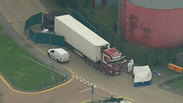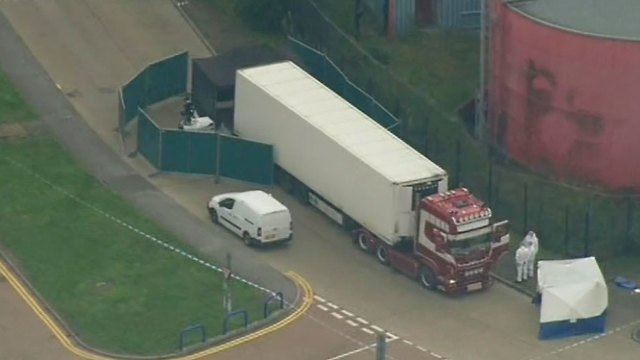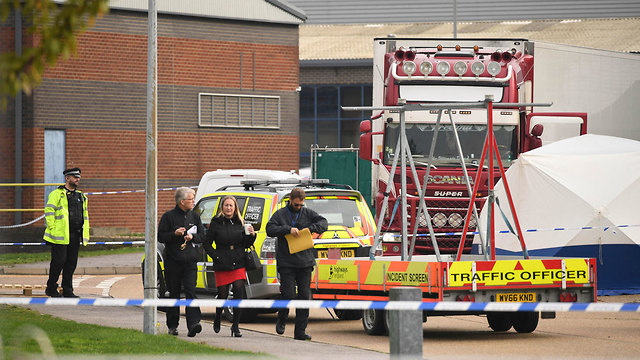
The truck, which is said to have entered Britain via the Welsh port of Holyhead on Saturday, was found by ambulance workers at Waterglade Industrial Park in Grays, a town just by the River Thames around 25 miles (40 kms) east of central London.
"This is a tragic incident where many people have lost their lives. Our enquiries are ongoing to establish what has happened", Essex Police Chief Superintendent Andrew Mariner said.
"We are in the process of identifying the victims, however I anticipate that this could be a lengthy process".
A 25-year-old-man from Northern Ireland has been arrested on suspicion of murder.
He remains in custody and has not been charged or identified.
A cordon has been put in place and access to and from the industrial park remains closed.
"We are working with Thurrock Council (the local authority) to mitigate against any impact our investigation scene will have locally", Mariner said.
Prime Minister Boris Johnson pledged in a tweet to work closely with Essex Police to establish exactly what happened.
"My thoughts are with all those who lost their lives & their loved ones", Johnson said.
Police have not formally linked the deaths to people trafficking, but a link is assumed because of the way the victims were crammed into the truck container.
The tragedy appears similar to the death of 58 migrants in 2000 in a truck in Dover.
Smaller numbers of migrants have occasionally been found in trucks since then.
Bulgarian authorities said they could not yet confirm that the truck had started its journey from Bulgaria.
"We are in contact with our embassy in London and with British authorities", Bulgarian foreign ministry spokeswoman Tsvetana Krasteva said.
Jackie Doyle-Price, who represents Thurrock in parliament, tweeted that "people trafficking is a vile and dangerous purpose. Let's hope they bring these murderers to justice".
Seamus Leheny, Northern Ireland policy manager for the Freight Transport Association, said the route that had been used was "unorthodox" since it apparently involved traveling to the island of Ireland and then entering Britain via a ferry to a major passenger port in Wales.
He said that the chosen route may have been influenced by increased security and checks in the major English port of Dover and the French port of Calais.
"People have been saying that security and checks have been increased at places like Dover and Calais, so it might be seen as an easier way to get in by going from Cherbourg or Roscoff, over to Rosslare, then up the road to Dublin", Leheny said.
"It's a long way around and it'll add an extra day to the journey."


















